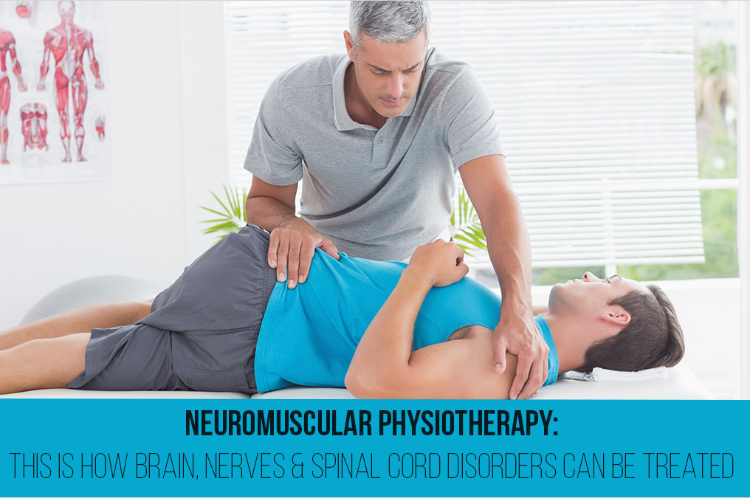
- 19 Oct 2020
- |
- By Admin
Neuromuscular Physiotherapy: This Is How Brain, Nerves & Spinal Cord Disorders Can Be Treated
Neuromuscular disorder is a broad term, which encompasses ailments and diseases related to impaired functioning of muscles and nerves.
Either it can happen directly, wherein the concerned muscles is impacted, or indirectly, wherein the concerned nerve is impacted, thereby disrupting the functioning of the neuromuscular junction (a chemical synapse between a motor neuron and a muscle fiber) Neuromuscular Physiotherapy is suggested and applied in cases of disorders related to neuromuscular, which concerns brain, nerves and spinal cord.
What Are The Common Conditions in Neuromuscular Disorders?
Some of the most common conditions associated with neuromuscular disorders are:
- Brain injury
- Stroke
- Parkinson's Disease
- Guillain-Barré Syndrome
- Muscular Dystrophy
- Limb girdle muscular dystrophies (LGMD)
- Multiple Sclerosis
- Neuropathy
- Congenital myopathies
- Neurogenic arthrogryposis and other neurogenic conditions
- Mitochrondial, inflammatory, or storage disorders
How Physiotherapy Can Help In Treating Neuromuscular Disorders?
Broadly speaking, Neuromuscular Disorders directly impact movements of the patient - They find it difficult to move their muscles, hence find it tough to accomplish normal body functions such as walking, running, jumping, since their muscles lose strength.
In the case of children, these conditions stops their normal growth and both mental and physical growth is impacted.
And this is where Neuromuscular Physiotherapy can help the patients.
A Neuromuscular Physiotherapist will start the treatment with 4 main objectives:
- Maximize function of the muscles
- Maintain independence
- Increase mobility and strength
- Prevent pain and encourage normal body movements
In case of brain and spine injuries, there can arise some secondary complications as well, such as contractures and curvature of the spine (scoliosis). Via Neuromuscular Physiotherapy, such secondary complications can be handled and minimized to a greater extent by observing and monitoring the changes which can erupt.
In some cases of neuromuscular disorders, the patient has difficulty breathing. Physiotherapists can also provide respiratory exercises to improve this condition and enable the patient to breathe without any difficulty.
Via respiratory physiotherapy, lungs can be cleared of secretions, and the effort for breathing can be reduced.
What Is Involved In Neuromuscular Physiotherapy?
The exact physiotherapy exercises and procedures are determined only after an in-depth and thorough assessment of the patient, and understanding the inherent problems associated with the brain, spine and nerves.
Some of the most common rehabilitation techniques which we employ for patients of neuromuscular disorders are:
- Stretching exercises
- Strength training
- Mobility training
- Gait training
- Neuromuscular retraining
- Functional training
- Pain management
The goal and objectives of Neuromuscular Physiotherapy is obtaining an equilibrium in the body movements, especially in those areas which are severely impacted due to muscle and nerve disorders.
Via exercises, the patient is taught and trained how to acquire postural control in situations which resemble daily, normal day to day functioning, and then gradually, more demanding activities. The patient can gradually improve range of movement and flexibility, with regular and professional physiotherapy treatment.
In order to initiate Neuromuscular Physiotherapy, please consult with our physiotherapists, and find out how physiotherapy can help the Brain, Nerves & Spinal Cord Disorders.
- Neuromuscular Physiotherapy: This Is How Brain, Nerves & Spinal Cord Disorders Can Be Treated
- Spinal Cord Injury: 3 Spine Physiotherapy Treatments Recommended By Experts
- What Is Cardiovascular Physiotherapy? What Are The Benefits Of Physiotherapy In Cardiac Rehab?
- What Is Musculoskeletal Physiotherapy?
© Copyright CURENOW . All Rights Reserved. Presented By
RISIAR Step In Business Hub Pvt Ltd